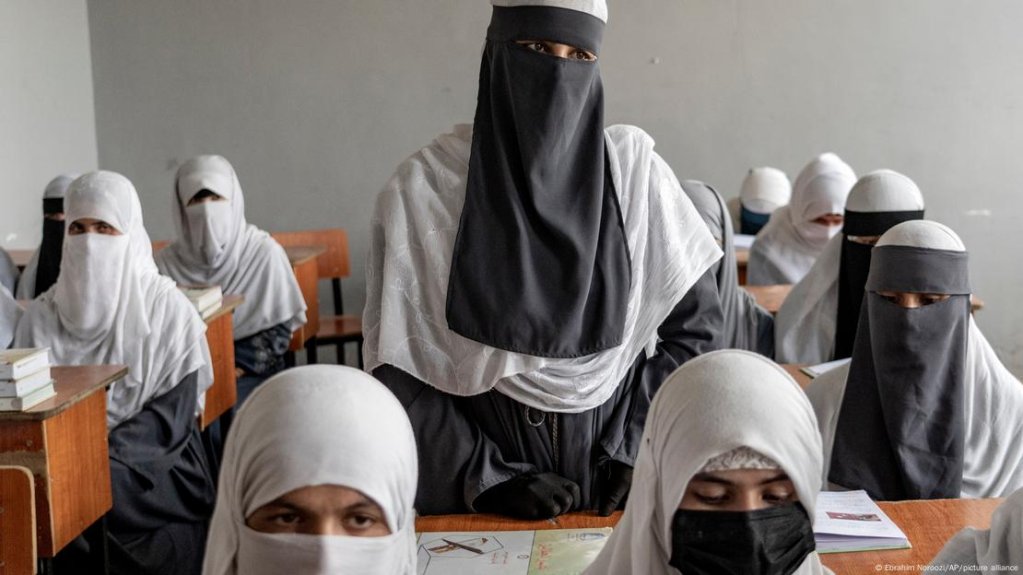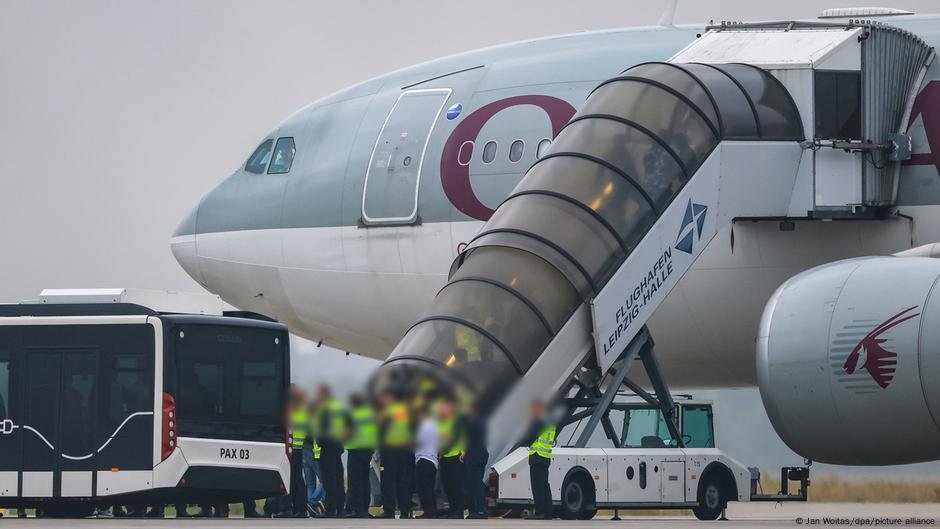The International Organization for Migration (IOM) has said that Afghan nationals who are sent back to their country suffer profound difficulties in adjusting to life there. Meanwhile, Germany and other European governments continue to discuss how they can deport rejected Afghans back home.
The ongoing rejection of the de facto Taliban government and discussions on the deportation of criminal Afghan nationals from Europe are among key concerns, said the UN agency. The criticism comes as the German government is among several European countries seeking to create better routes to be able to deport rejected Afghans back to their own country, particularly when they have been convicted of a crime.
Mihyung Park, head of IOM operations in Afghanistan, told the dpa news agency that many Afghan nationals who had never even lived in the country, were being sent back, especially from neighboring countries.
In particular, she highlighted that women continued to face particular risks under the Taliban rule and that they were being systematically denied access to higher education and most jobs.
Park also emphasized that people who had once held senior government posts prior to the 2021 Taliban takeover, also faced reprisals and persecution — as well as those who had worked as journalists or human rights advocates before the Taliban's return to power.
She stressed that there were many cases of people who had sold their houses and belongings in Afghanistan in order to escape Taliban rule in the first place or people who had been forced to go into debt.
She pointed out that these demographics were now facing compound challenges while beginning to somehow rebuild their lives once more.
Read AlsoGermany: Afghan women and girls almost guaranteed to receive asylum
Tens of thousands of forced deportations from Pakistan and Iran
The UN agency highlighted the fact that more than two million Afghans had been returned from neighbouring countries since the start of the year, chiefly from Pakistan and Iran.
Many cases of returns reportedly took place "under duress," according to dpa.
Park warned that the total numbers of people sent back to Afghanistan could reach three million by year's end, according to IOM estimates as each day, close to 10,000 new people continue to show up at Afghanistan's borders.
The IOM meanwhile says that the total number of internally displaced persons (IDPs) in Afghanistan stands at over 5.5 million, with over ten percent of that number relating to 2025 alone.
Iran and Pakistan have both introduced major deportation policies for Afghan nationals in recent months, resulting in thousands of people being sent to Afghanistan summarily each day.

Turkey catching up on 'voluntary' deportations
The IOM notes that Turkey meanwhile has also upped its rate of deportation of people from Afghanistan over the past two years, operating direct charter flights to carry Afghans back.
Turkish authorities claim that these people leave Turkey voluntarily; however, in the majority of cases they consist of people who were rounded up and detained for not having valid papers such as a residency permit on them.
Migrants and refugees who fail to register in Turkey, or are in breach of laws governing their presence there, can be sent back to their countries of origin; however, with Afghan nationals in particular, Turkish authorities have been reluctant and slow in issuing documents to regularize those fleeing Taliban rule.
The European Council on Refugees and Exiles (ECRE) says that Turkish authorities apprehended nearly 66,000 Afghans as irregular migrants last year alone.
Read AlsoEn route to Germany, Afghans face deportation in Pakistan
Germany's slow bureaucracy endangers dozens of Afghans
The issue of returns to Afghanistan — whether it involves forced returns or deportations of criminals from EU countries remains highly controversial.
Last month, it emerged that dozens of Afghans who had previously been accepted into German resettlement programs had been deported from Pakistan to Afghanistan.
German Foreign Minister Johann Wadephul has since reached an agreement with Pakistan's government in Islamabad to halt such deportations, with a Foreign Office spokesperson announcing last week that Germany and Pakistan had agreed to complete all resettlement procedures "in an orderly manner" by the end of the year.

Still, only 47 Afghans with German entry approvals have so far arrived in Germany — out of a total of over 2,000; many NGOs fear that slow bureaucratic processes will continue to hold back the rate of admissions.
The ones who have arrived were all part of a group which had to take the German government to court over the issue in the first place, with hundreds of other Afghans with entry approvals not having access to such legal recourse.
Read AlsoPakistan deports Afghans with German resettlement rights
Plans to carry out more deportations to Afghanistan from Germany
Meanwhile, talk of deporting Afghan nationals who have been branded as dangerous, who currently are residing in Germany, has once again become a major political talking point, as elections in Germany's most populous state over the weekend — North-Rhine Westphalia — have shown once more that there is a noted shift to the right across the country.
Germany has so far only deported male Afghans who had been convicted of serious crimes, and since the return of the Taliban in 2021, there have only been two deportation flights to the country carried out.
However, Interior Minister Alexander Dobrindt says he wants deportations to Afghanistan to occur more regularly as part of a broader crackdown on irregular migration.
Presently, Afghanistan is the single biggest country of origin for asylum seekers coming to Germany, having overtaken Syria in recent years.

Read AlsoVideo: Refugees, migrants in Germany feel less welcome
German government plays both sides with Taliban rulers
Despite these issues and the IOM's overall opposition to deportations to Afghanistan, Park praised Germany's Interior Ministry and Foreign Office for cooperating with UN bodies trying to help Afghans.
However, she also criticized the fact that countries such as Germany and others have imposed increasingly tight controls on what the UN can accomplish there — even as a string of natural disasters affect more and more people on the ground.
Park said that Germany's ongoing refusal to recognize the Taliban government held many of the UN's efforts back, adding that despite this, Germany was obviously willing to entertain and engage with Taliban representatives if it suited its own policies, referring to the divisive practise of deporting criminal Afghan nationals from Germany.
Read Also Germany turns to Taliban to deport Afghan criminals amid migration policy shift
Afghanistan: Security situation improves despite displacement crisis
Despite facing many uphill battles, Park said there were two positive developments, which should not be overlooked:
She highlighted the fact that aid groups could now finally reach every province in Afghanistan, and the fact that the overall security had significantly improved in recent years as another positive — despite the loss of the US as a key donor to development efforts in Afghanistan under a directive by President Donald Trump, which she explained had set back certain aid efforts in recent months.
But Park stressed the importance of greater and better cooperation, asking for governments to keep the bigger picture in mind:
Park highlighted the example that at border crossings into Afghanistan, there were only a few computers and printers available to help register returnees and that these computers were considerably outdated.
She said that this resulted in long waits for exhausted travelers, who had just been forced to leave their new lives in Afghanistan's neighboring countries behind, adding unnecessary stress and anguish to their experience as they return to the life that they had tried to flee.
Read AlsoGermany ends admission freeze for vulnerable Afghans
with dpa
